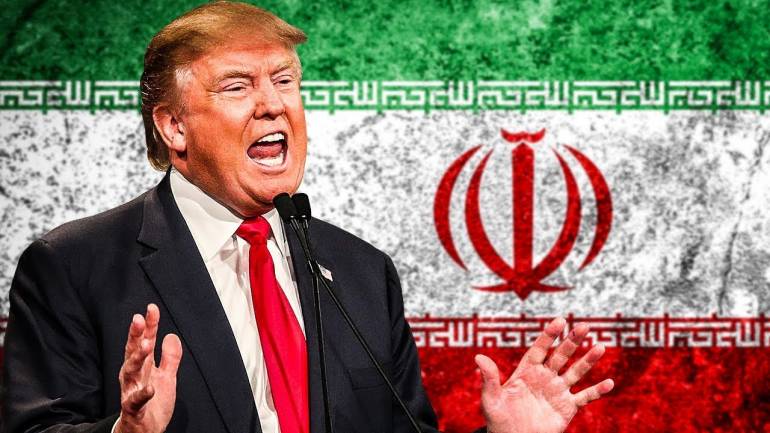
The new sanctions imposed on Iran by the United States earlier this month are aimed at isolating the country economically and bringing about either regime change in Iran or an otherwise radical change in its behavior. According to the American administration, this new series of sanctions – the second since last August – is the harshest ever imposed on that country.
Despite the hardships that these sanctions will no doubt have on Iranian citizens, it is unlikely that they will produce the results desired by Donald Trump.
These sanctions follow Trump’s announcement last May that the U.S. was withdrawing from the Iranian nuclear agreement reached in Vienna, also known as the Joint Comprehensive Plan of Action. According to that agreement, Iran has the right to pursue its nuclear program solely for projects unrelated to weapons in exchange for the lifting of principal sanctions by the United States and the United Nations.
Trump has never hidden his hostility for the JCPOA. According to him, that “very bad deal” will not prevent Iran from developing nuclear weapons in the future, and it doesn’t take into account the ballistic missile program or Iran’s destabilizing activities in the region, notably its involvement in Syria, Iraq and Yemen. The main regional adversaries of the Islamic Republic, Israel and Saudi Arabia, share Trump’s concerns.
’Maximum Pressure’
Until now, Iranian leaders have reacted defiantly to the new phase of American sanctions. They are committed to respecting the JCPOA (all while reinforcing the conventional military capacities of the country and pursuing their regional agenda). Other signatories of the accord have adopted a similar attitude: the United Kingdom, France, Germany and Russia, as well as the European Union and the International Atomic Energy Agency, support Iran’s position in affirming that it is completely abiding by the rules of the JCPOA.
Undoubtedly, however, the “maximum pressure” of the United States is being felt. While leaders in the West and Asia are determined to defy U.S. extraterritorial sanctions, which target third-party economic operators engaged in business deals with Iran, foreign enterprises that had invested in Iran after the signing of the Vienna accord have started to pull out of the country. Others will certainly follow after the end of the transition period provided for in these new sanctions.
As a result, Iran’s already fragile economy will be hurt even more, bringing about a new decline in its currency and new price increases. The rapid decline once again in the lives of the Iranian people has already given way to demonstrations that the regime is able to contain by placing blame on the Americans.
Mitigated Impact
We must not, however, underestimate the capacity of Tehran to deal with sanctions, particularly in light of the reinforcement of its economic and commercial ties with key partners, including China, India and Russia. In the case of Russia, the bilateral accords are related to arms sales and strategic partnerships – particularly in Syria – and direct investments. The Russian government has thus announced an investment of up to $50 billion by several Russian oil and gas exploration companies in Iran, which are also developing the South Pars gas field, the largest in the world.
China, for its part, provides funding and technical assistance to many projects in Iran, including rail network development and hospital construction. Last year, the public investment fund of the People’s Republic of China, CITIC Group, granted a $10 billion line of credit to Iran to finance several infrastructure projects, and the Development Bank of China has pledged $15 billion more. And given that China is one of the countries exempt for six months from American sanctions, it will continue to buy Iranian oil, comprising up to 11 percent of its imports.
Finally, India, which is also temporarily exempt from sanctions, will continue to maintain good relations with Iran for two reasons. The first is that more than 10 percent of its oil imports comes from Iran, and it would be too expensive for it to change that supply. The second is that the two countries have cooperated with the development of the Chabahar deep-water port in the Gulf of Oman and signed a goods transit agreement aimed at helping India bypass its regional rival, Pakistan, in order to gain access to the Afghan and central Asian markets.
India’s position must be particularly problematic for Trump. On the one hand, he called on that country to play a more active role in Afghanistan as part of the U.S. exit strategy from the conflict there, but on the other hand, he cannot endorse India’s strategic engagement with Tehran.
All these factors – combined with the EU’s determination to preserve the Vienna accord, the potential resale of Iranian oil to Europe by Russia and the financial activities of the Islamic Republic in Iraq and elsewhere – will help mitigate the impact of U.S. sanctions.
This is not to say, however, that Iran’s leaders can breathe easy today. On the contrary, the Islamic Republic is facing great financial difficulties. But just as U.S. sanctions against Iraq in the 1990s failed to overthrow Saddam Hussein, it is unlikely that current sanctions will translate into regime change in Iran. If there is any doubt that the Iranian people will suffer, the regime will, without a doubt, attain enough nationalist sentiments – and external support – to overcome any threat to its survival.

Leave a Reply
You must be logged in to post a comment.